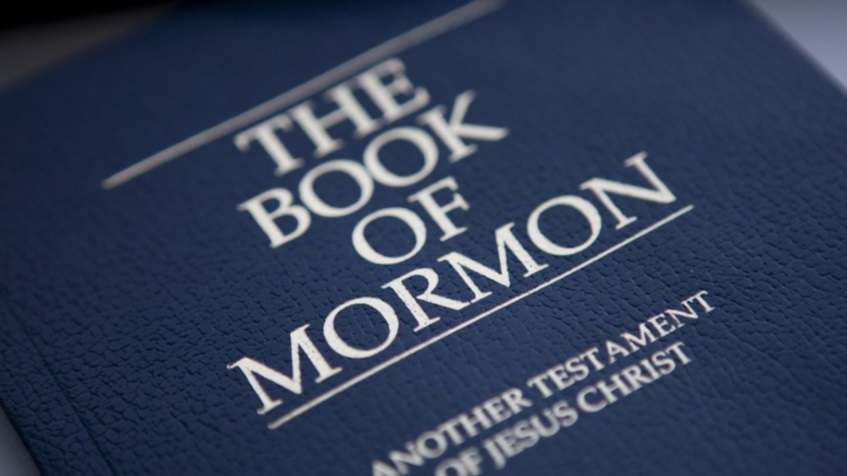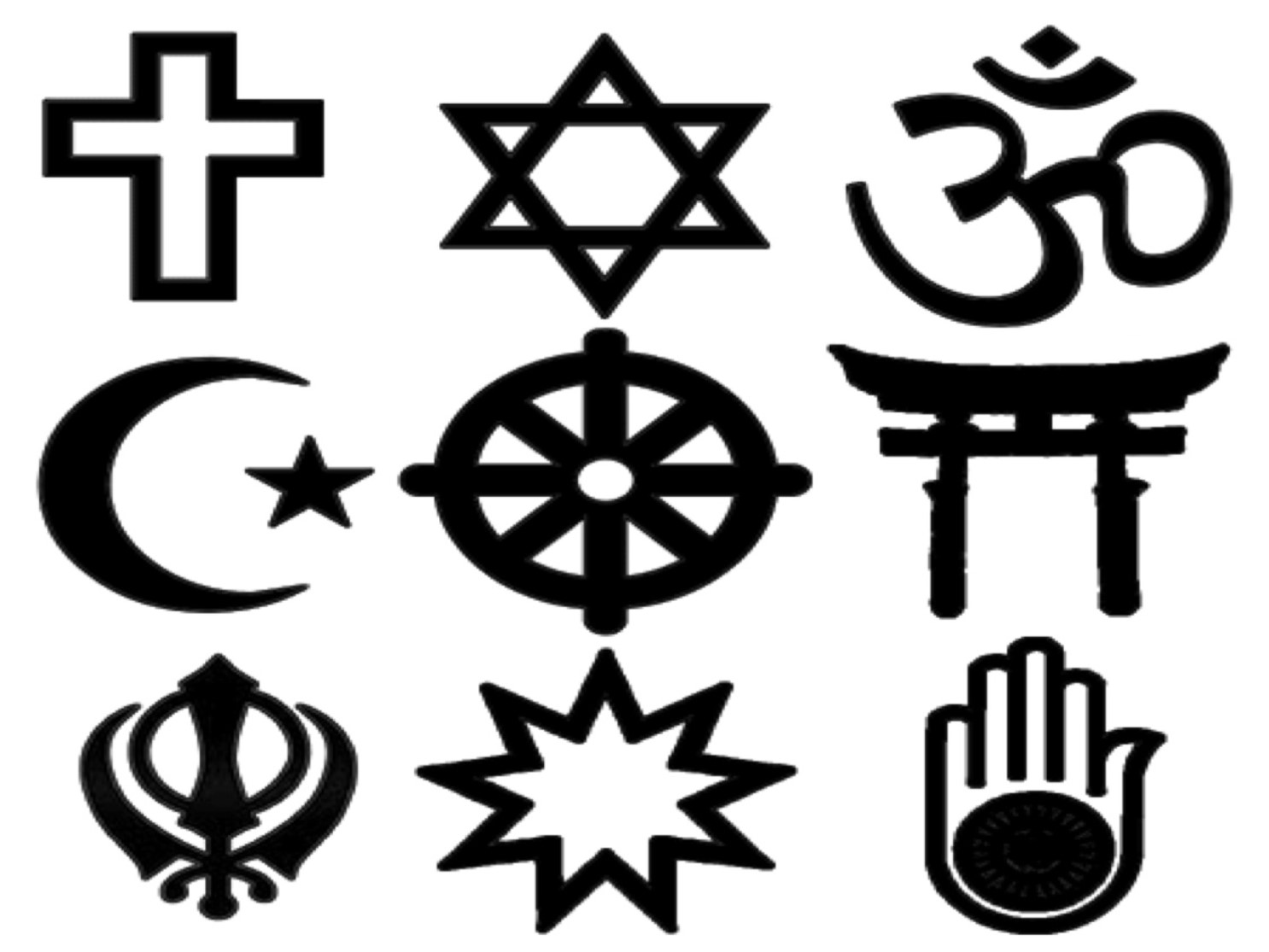Judaism
Historical and Theological Comparisons
This page explores the epistemological claims (provability) of Judaism, broadly speaking, its attempts at providing an ethical framework, and its historical development after the time period of Jesus and the New Testament.
For more resources on the historicity of biblical Israel, see Proof: Historical Knowledge. For a theological appraisal on why God had an Israel in the first place, and couldn’t just skip right to Jesus, see The Goodness of God: Israel and the Old Testament. For a theological, historical, and political exploration of modern Zionism, see Church and Empire: State of Israel.
Messages and Resources on Judaism:
The Trinity: Can Other Gods Be Personally Known?
Jesus' resurrection confirms that God is a Triune being. That is because, to be knowable, God must be transcendent (Father), immanent (Son), and the link between them (Holy Spirit). Also, to be the lover and redeemer of humanity, God must be wholly other than us (Father), who becomes one of us (incarnate Son), to become one with us (Holy Spirit).
What Are You Waiting For? Jewish and Christian Views of the Messiah
Slides of a presentation. This presentation explores the historical hopes of Israel in Second Temple Judaism, under the Roman Empire. It also examines Jewish military messianic movements from 163 BCE - 135 CE, which were very frequent, since many Jews had revolutionary aspirations. We consider how Jews had four main options of strong vs. weak identification with Judaism and strong vs. weak assimilation with Rome. We position Jesus and his followers as a “new temple” movement that extended the hopes of Israel into a messianic peace movement.
Stories and Spirituality: How the God Engages Human Evil
A one page chart comparing views of God and human evil. God could role model inner peace, or change human nature as one of us, or give us better laws. The chart compares how the deity in each category interacts with concepts of good and evil, whether the deity can touch humanity, how the deity helps us deal with human evil, and whether the deity will heal the world.
Stories and Social Consequences: Jesus’ Resurrection and Comparison with Atheism and Hinduism
A one page chart comparing stories. Classical Indian and Greek stories reflect a circular, reincarnation paradigm. Christianity tells a story — anticipated in the Hebrew Scriptures — of a good God who heals human evil by becoming one of us, then one with us. Atheism tells a story using the Second Law of Thermodynamics where the universe will eventually become cold and dead.
Why Did God Choose a "Chosen People"? Why Not Just Skip Right to Jesus?
An important question when considering the uniqueness of Judaism, Jewish suffering, and the role of human partnership with God
The Resurrection of Jesus: Did the Four Gospels Record the Truth?
This paper examines the New Testament documents and answers various historical questions. How was it transmitted? How historically reliable is it? Would people in a Greco-Roman context invent the idea of Jesus’ resurrection, and succeed in spreading it? Would people in a Jewish context invent the idea of Jesus’ resurrection, and succeed in spreading it? Do the Gospel narratives about Jesus’ resurrection tell one story? Was the empty tomb of Jesus a historical fact? Were the appearances of the resurrected Jesus hallucinations or real? A 30 minute read.
The Resurrection of Jesus: Did the Four Gospels Record the Truth?
This paper is a shorter version of the one above.
The Resurrection of Jesus: Did the Hebrew Scriptures Foresee a Risen Messiah?
This paper analyzes various passages of the Hebrew Bible, from the three major portions: Torah, Prophets, and Writings. It explains how they are interrelated, and based on the conviction of Genesis 1 that God made the creation good, and is committed to the creation. Thus, God made human bodies good, and is committed to human bodies, not simply human souls.
The Resurrection of Jesus: Was It a Jewish Invention?
Slides to a presentation exploring the historical and sociological context of Second Temple Judaism and the historical period of Jesus of Nazareth. The presentation demonstrates how Jews at the time expected a military messiah and a political liberation of Israel. The implications include that Jesus had to honor and affirm the biblical passages and Jewish hopes, even while arguing for a truer interpretation of his mission and Israel’s mission.
Other Resources on Judaism
Wikipedia, Jewish Messiah Claimants (Wikipedia article)
Wikipedia, Messiah Ben Joseph (Wikipedia article) a very important concept in Jewish-Christian dialogue
Internet Encyclopedia of Philosophy, Maimonides. Internet Encyclopedia of Philosophy. See especially virtue ethics
Rabbi Irving Greenberg, The Third Great Cycle of Jewish History. New York: CLAL–The National Jewish Center for Learning and Leadership, 1987. is an excellent history of the Rabbinical movement and its origins in the Pharisees of Second Temple Judaism, and the corresponding understanding of God and God’s activity in allowing evil and wickedness to go unpunished in the world
Jeremy Kalmanofsky, Personal Virtue. Journal of Jewish Ideas, Sep 1, 2005.
Peter Hayman, “Monotheism: A Misused Word in Jewish Studies?” Journal of Jewish Studies, Jul 2010. explores the “model” of God being both transcendent and immanent, not monistic; this relates well to the Trinitarian “model” of God understood by Christians
Nehemiah Gordon, The Hebrew Y'shua vs. the Greek Jesus. Nehemiah Gordon, Apr 24, 2011. A two hour video.
Michael Heiser, The Two Powers of the Godhead in Jewish Thought. Brent Emery, May 4, 2013. An hour and 20 minute video.
Rabbi Itzhak Shapira, The Return of the Kosher Pig: The Divine Messiah in Jewish Thought. Messianic Jewish Publishers | Amazon book, Jul 1, 2013.
We Don’t See Things As They Are, We See Them As We Are. Quote Investigator, Mar 9, 2014.
N.T. Wright, Israel in Pauline Theology. Houston Baptist Seminary, Mar 20, 2014. An hour video.
Brian Mattson, Sympathy for the Devil. Mar 31, 2014. suggesting the Jewish Gnostic Kabbalah informs Darren Aronofski's film Noah
Ira Jay Bedzow, A Contemporary Jewish Virtue Ethics. Emory University dissertation, 2014.
John Polkinghorne interview. note 28:20min mark about comparative belief systems.
Kurt Streeter, At 93, Rabbi Leonard Beerman still stirs passions with pacifist views. Los Angeles Times, Nov 26, 2014.
Sam Shamoun, Examining Psalm 110:1: A Look at Its Implications on God Being a Multi-Personal Being and Upon the Deity of Christ. Answering Islam website.
Jay Michaelson, How Hasidism Bridges Boundary Between Christianity and Judaism. Forward, Feb 4, 2015.
Michael Heiser, The Jewish Trinity: How the Old Testament Reveals the Christian Godhead. Sentinel Apologetics, Feb 13, 2015.
David Gelernter, Why Should a Jew Care Whether Christianity Lives or Dies? First Things, Mar 24, 2015.
Rabbi Evan Moffic, Where Was God in Nepal? Huffington Post, Apr 27, 2015.
Rabbi Shmuley Boteach, Legalizing Gay Marriage in the Supreme Court. Rabbi Shmuley, Jun 30, 2015. Argues for civil unions for all, marriage for none
Coalition On the Environment and Jewish Life. COEJL website.
Sean Braswell, How One Jewish Leader Escaped Mass Suicide. Ozy, Nov 8, 2015.
Orthodox Rabbinic Statement on Christianity. Center for Jewish-Christian Understanding and Cooperation, Dec 3, 2015.
Vatican Radio, Orthodox Rabbis Issue Groundbreaking Statement on Christianity. Vatican Radio, Dec 10, 2015.
David P. Goldman, Michael Wyschogrod, Dead of Orthodox Jewish Theologians, Dies at 87. Tablet magazine, Dec 18, 2015.
Kristin Romey, Has the ‘Signature’ of Biblical Prophet Isaiah Been Discovered? National Geographic, Feb 21, 2018.
James Loeffler, Rooted Cosmopolitans: Jews and Human Rights in the Twentieth Century. Yale University Press | Amazon page, May 4, 2018. See review by Gil Rubin, A State of Their Own: Jewish Internationalism and Human Rights. Marginalia, Jun 6, 2018.
Michael Berger, Religious Zionism. Center for Israel Education, Jul 12, 2019. An important historical overview of religious Zionism through the thought of one spokesman, Rabbi Tsvi Yehuda Kook. In the early movement, Religious Zionists were not necessarily political Zionists insisting on an autonomous State. Religious Zionists thought of secular Zionists as part of the messianic process, and wanted to provide a spiritual-theological witness to secular Jews. But Religious Zionists embraced military service, the settlement of the West Bank, and violent tactics over time. One follower renounced the beliefs of Kook after the assassination of Yitzak Rabin.
Ari Lamm, Israel’s Political Mythology. First Things, Oct 10, 2019. Lamm examines the political and cultural role played by the Idumeans among the Jews at the time of Jesus; suggests that “Jewishness” is more complicated and permeable than simply “ethnicity,” and/or that the State of Israel has the potential of being more tolerant towards people who do not identify as “ethnic Jews.”
N.T. Wright and Michael Kinzer, A Debate on the Meaning of Israel. Messianic Jewish Theological Institute, Mar 22, 2020.
Rabbi Micah Streiffer, Radical Jewish Ideas About God (Twitter, Jun 9, 2022)
Itamar Rosensweig and Shua Mermelstein, Rights and Duties in Jewish Law. Tauro Law Review Volume 37, Number 4, Article 17, 2022. Offers a way of reconciling rights-based and obligation-based frameworks — that rights and obligations are correlates of each other. This is helpful as building blocks of a Jewish and also Christian framework of virtue ethics and character-formation. Also, they present valuable historical data and sources.
“In this Article, we argue that rights play a central role in Jewish law. In Section I, we reconstruct Robert Cover’s thesis distinguishing the West’s jurisprudence of rights from Judaism’s jurisprudence of obligation. In Section II, we present Rabbi Lichtenstein’s theory that rights play no central role in Jewish law. We show that the theories of Rabbi Lichtenstein and Robert Cover have given rise to the idea that there are no rights in Jewish law, only obligations. In Section III we develop two types of arguments in support of our position that rights are central to Jewish law. Our first argument appeals to Hohfeld’s analysis that rights are correlative of duties. Our second argument contends that certain mitzvot are best understood as protecting individuals’ rights. In Section IV we discuss two ideas that underlie the “no rights in Jewish law camp.” The first idea is that the category of mitzvah is best interpreted as obligation. The second idea is that an obligation to obey God’s law implies a law comprised of obligations. We argue that both of these ideas are misguided.”
Rebecca Scharbach Wollenberg, The Closed Book: How the Rabbis Taught the Jews (Not) to Read the Bible. Princeton University Press | Amazon page, 2023. See introduction by Rebecca Scharbach Wollenberg, How the Rabbis Taught the Jews (Not) to Read the Bible. Ancient Jew Review, May 21, 2023.
Liane M. Feldman, The Consuming Fire: The Complete Priestly Source, from Creation to the Promised Land. University of California Press | Amazon page, Apr 2023. See introduction by Liane M. Feldman, Displaying The Literary Artistry of P. Ancient Jew Review, Sep 12, 2023.
Proof: Topics:
These resources on Other Beliefs explore the epistemology (proof for, and provability), metaphysics (ideas about God and reality), ethics, and historical development of various belief systems. Comparisons are drawn between Christian faith and Hinduism and Buddhism, Judaism, Islam, Mormonism, and Atheism.






